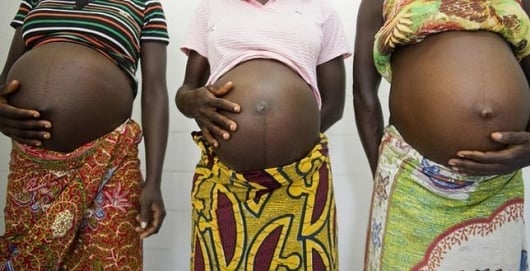The Upper East Region of Ghana is facing a concerning surge in teenage pregnancies, with 2,436 cases reported between January and May 2025. This alarming figure reveals a critical need for enhanced adolescent health and protection measures in the region. Of particular concern is the vulnerability of younger girls, as 25 of the reported pregnancies involved girls between the ages of 10 and 14. The majority, 2,411 cases, involved teenagers aged 15 to 19. This data underscores the urgent necessity for comprehensive interventions targeting both prevention and support services for pregnant teenagers. The information was presented at a review meeting focused on the Essential Services Package (ESP) for women and girls subjected to violence, a collaborative project involving the Department of Gender, the Upper East Regional Coordinating Council, and the United Nations Population Fund (UNFPA). This meeting served as a platform for key stakeholders to address the multifaceted challenges surrounding teenage pregnancy and gender-based violence.
Analysis of the data revealed significant disparities in teenage pregnancy rates across districts within the Upper East Region. Bawku West District recorded the highest number with 372 cases, potentially indicating specific sociocultural factors or gaps in service provision within that area. Pusiga followed with 276 cases, and Bongo with 212 cases. Other districts with notably high numbers included Talensi (210), Kassena Nankana West (198), Kassena Nankana Municipality (196), and the Bolgatanga Municipality (152). In contrast, Bolgatanga East recorded the lowest number of teenage pregnancies at 52. This geographical variation underscores the need for targeted interventions tailored to the specific challenges within each district. Further investigation into the underlying causes of these disparities is crucial for developing effective prevention strategies.
The review meeting also brought to light critical issues related to gender-based violence, which is often interconnected with teenage pregnancy. Mr. James Akandi, the Registrar at the Circuit Court, revealed that 14 out of the 24 gender-based violence cases before the court were defilement cases, further highlighting the vulnerability of young girls in the region. However, challenges such as witness reluctance to testify and resource constraints hamper effective prosecution and justice delivery. These obstacles need to be addressed to ensure accountability and provide support for survivors of gender-based violence. Strengthening witness protection programs and increasing resource allocation to the justice system are essential steps towards improving the outcomes of these cases.
Compounding the challenges is the lack of effective coordination within the system designed to protect victims of gender-based violence. ASP Mariam Awemoni, the Regional DOVVSU (Domestic Violence and Victim Support Unit) Coordinator, revealed a significant communication gap between her office and the district offices. The current reporting structure, where district offices report directly to the national level, bypasses the Regional Coordinator, hindering her ability to gather comprehensive data on cases and their progress. This disconnect hampers effective oversight and prevents a regional-level understanding of the scope and nature of gender-based violence. It underscores the need for a revised reporting structure to ensure efficient information flow and coordination among all stakeholders.
Addressing these complex issues requires a multifaceted approach with strong institutional collaboration. Mr. James Twene, the Acting Upper East Regional Director of the Department of Gender, emphasized the importance of coordination, data gathering, and segmentation in combating gender-based violence and teenage pregnancy. He urged essential service providers to work collaboratively and share information effectively to achieve positive outcomes. This collaborative approach necessitates clear communication protocols, shared data platforms, and regular inter-agency meetings to ensure a coordinated and effective response. Capacity building for service providers on best practices in data collection and case management is also crucial.
Ms. Yvonne Wonchua, the UNFPA Focal Person at the Regional Coordinating Council, echoed the call for enhanced coordination among ESP institutions and emphasized the importance of resource mobilization. Adequate funding is essential to support the implementation of effective programs and interventions, including comprehensive sexuality education, access to reproductive health services, and support services for teenage mothers. Furthermore, investing in community sensitization programs to challenge harmful social norms and promote gender equality is vital for long-term, sustainable change. Ultimately, a holistic approach that addresses both the root causes and the immediate consequences of teenage pregnancy and gender-based violence is crucial for protecting the well-being of girls and young women in the Upper East Region. This requires continuous monitoring and evaluation of existing programs, coupled with ongoing advocacy for policy changes that promote gender equity and empower girls to make informed decisions about their reproductive health.


